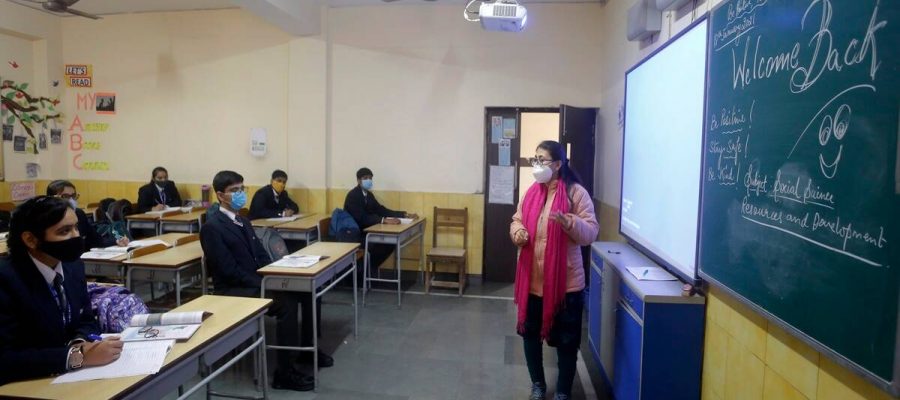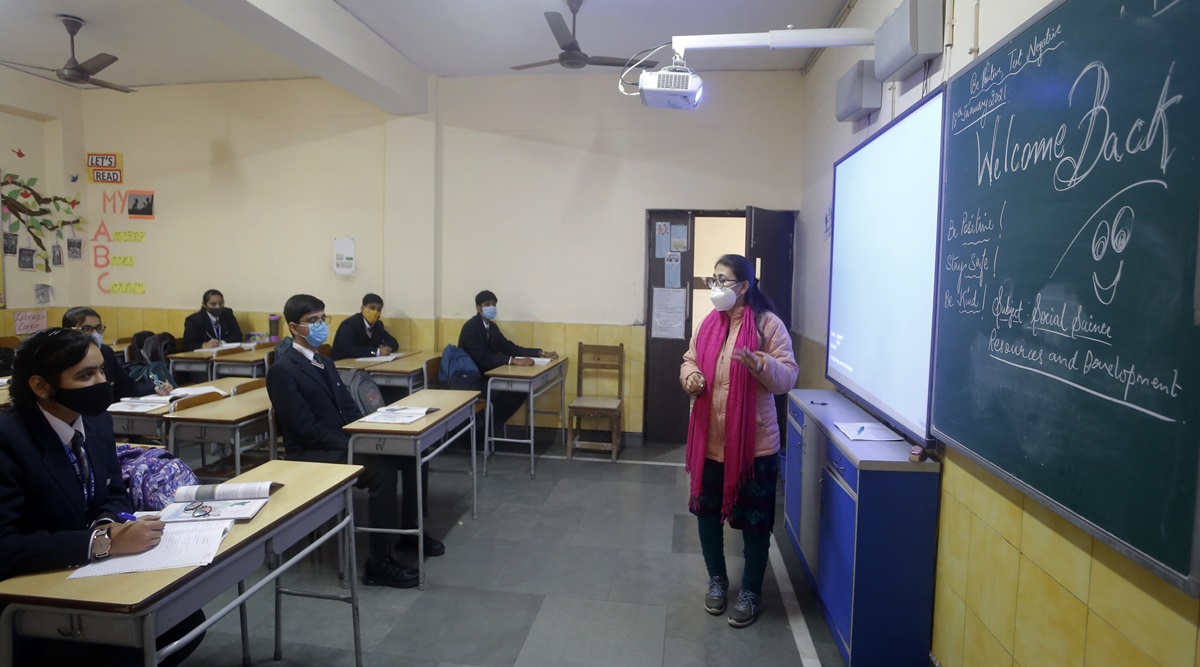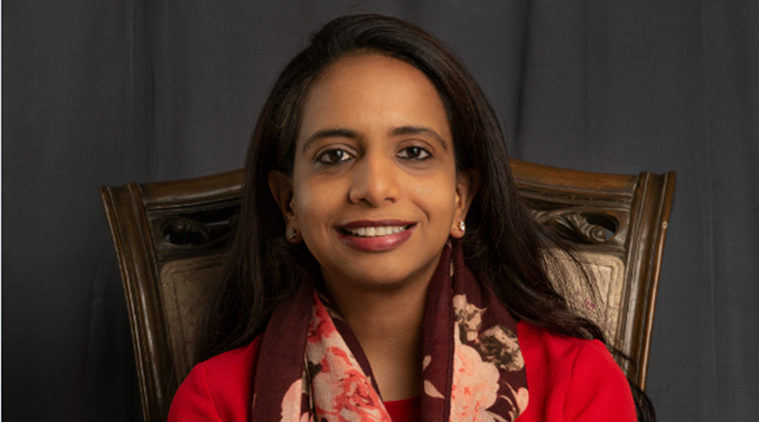The academic session will be bifurcated into two terms — Term I exams of a duration of 90 minutes will be held in November-December 2021 and term II exams will be held in March-April 2022 at exam centres.
The CBSE on Monday announced a revolutionary decision that may transform the board examination system in the coming years. At present, CSBE exams are conducted for class 10 and 12 at the end of the year, but the board has now announced that the exams will be conducted twice in the academic session 2021-22.
The academic session will be bifurcated into two terms — term I exams of a duration of 90 minutes will be held in November-December 2021 and term II exams will be held in March-April 2022 at exam centres. Teachers and students have shared a positive response to the board’s decision.
Ajay Choubey, vice principal, Rajkiya Pratibha Vikas Vidyalaya, Hari Nagar, New Delhi, says that the move is appropriate keeping in mind that Covid will impact the current academic cycle.
“Though the formula is new to use, we believe that it is for the benefit of both students and teachers. The whole year was full of uncertainties and surprises, but a well-planned route map will ensure better learning outcomes this year. Since classes are expected to continue online, reducing and dividing the syllabus into two will provide flexibility and deeper understanding of concepts,” he adds.
A Mumbai-based student counsellor, Swati Salunkhe believes that this should have been done during the academic session 2021-22. “Students should take it up as a semester-based system which is followed in colleges. Consequently, the exam pattern and paper checking procedures will also change. Since the announcement has been made much in advance, students and parents are relieved this year. Students will have a clear understanding of what they need to study for board 1 and board 2,” she adds.
Sindhura Narayana, managing director of the Narayana Group, says that the proactive release of the special assessment scheme for CBSE class 10, 12 provides much-needed clarity.
“The provision to upload internal assessment marks on the CBSE portal, if done in a timely manner, will allow for discrepancies in marking by various schools to be identified and rectified ahead of time. The only point of concern is the authenticity of exam results in the case of students attempting the term 1 and term 2 exams from home. Some form of proctoring will have to be envisaged to ensure that no malpractice occurs during the exam,” she adds.
Students are also relieved that now they will be able to prepare better for the entrance exams as board exams will not occupy their minds much. 17-year-old Bodhita Gautam Mishra, who will appear for board exams in 2022, says that dividing the syllabus into two parts is a positive direction in easing out students’ pressure.
“Since the first board exam, which will be conducted in November/December 2021, will have only 50 per cent multiple-choice questions (MCQs), it will a complete shift from the old pattern. After the syllabus will be rationalised, we will be able to keep up with our entrance exam preparations. Earlier, we used to revise the whole class 12 syllabus for both boards and competitive exams. Now, it will give us more time to revise the syllabus for entrance exams,” says Bodhita, who is a student of SR Public School, Kota.
Aayush Pratap, a class 12 student of the 2020-21 batch, says that the new scheme is much better than what they experienced as board aspirants amid the pandemic.
“The scheme ideally should have been adopted in 2020 when the pandemic had hit the country. Completing the syllabus is a fight for teachers, especially during pandemics. However, the existing exam system at the end of the year promotes rote learning to a great extent. Since colleges also follow a semester system, this will prepare students better for their upcoming educational life,” he adds. Aayush is a student of GD Goenka School, Jammu.
Source: Read Full Article






